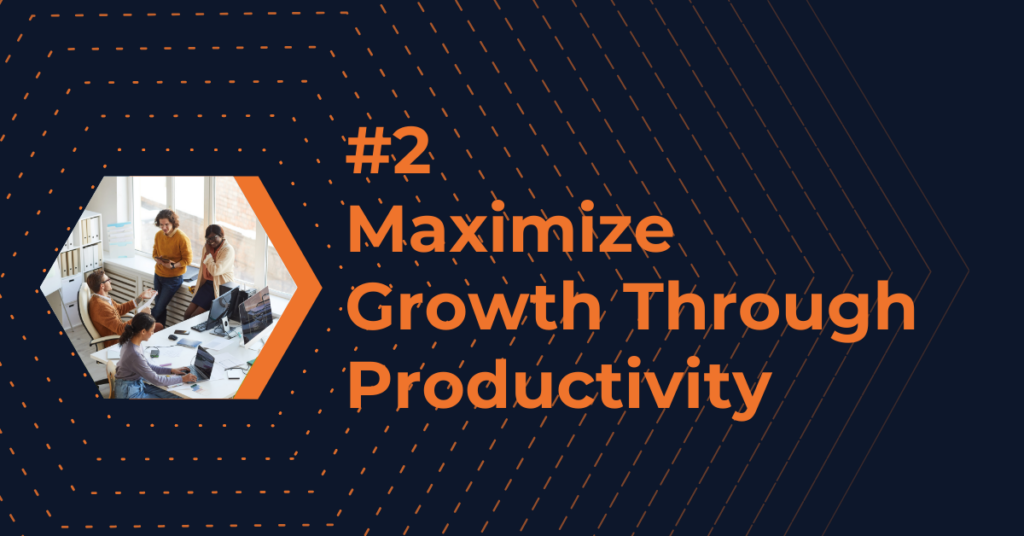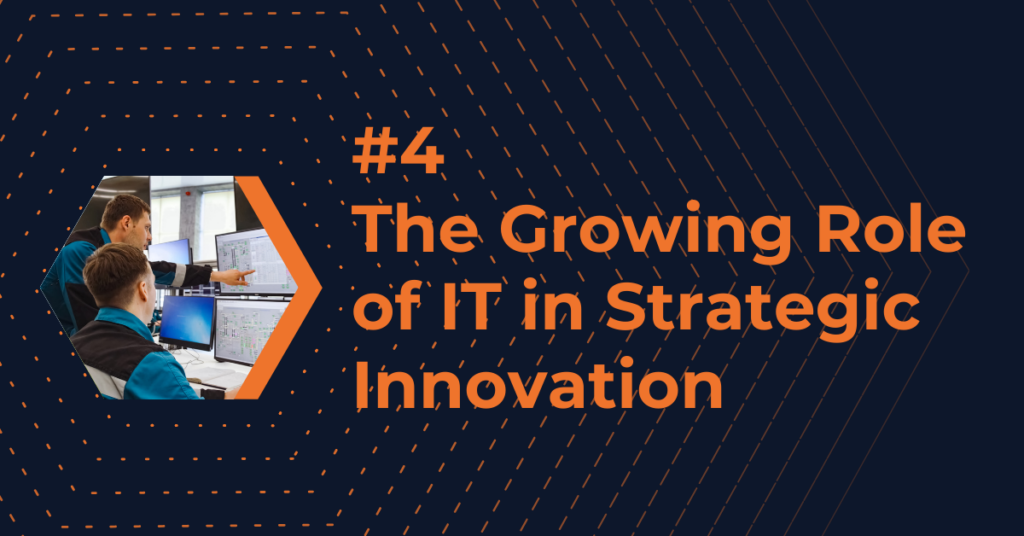The 7 Knowledge Management Trends Shaping 2025

In 2025, the future of knowledge management will be defined by emerging trends and innovations that transform how organizations leverage their knowledge assets. To stay competitive, organizations should embrace emerging trends that help them unlock data’s full potential, streamline operations, and enhance cross-functional collaboration—without being held back by the status quo. This means building an interconnected structure to support collaboration and sharing to maximize the value of their knowledge assets.
As CEO of Bloomfire, I’ve had the privilege of working closely with our customers and partners to pinpoint these knowledge management trends, which are reshaping how businesses treat knowledge as a strategic asset. These trends reflect the increasing importance of AI, data integrity, and integrated technology ecosystems, offering executives a roadmap to navigate the future of knowledge management effectively.

1. Corporate Data: Is it an Asset or Liability?
As businesses generate vast volumes of data, it’s become clear that not all information is created equal. Treating every piece of data like a high-value asset can be costly. In 2024, many companies began reassessing their knowledge assets, but separating valuable data from redundant, outdated, or trivial (ROT) information remained challenging.
In 2025, organizations will become sharper at quantifying the value of their data. Instead of just managing it, they’ll treat it as a dynamic entity that either contributes to growth or drains resources. This requires new frameworks to evaluate how data impacts revenue, efficiency, or cost reduction and how this is reflected on the balance sheet.
The Strategic Value of Data
For organizations to fully realize the potential of their knowledge assets, leaders must approach data management from a value-driven perspective. According to Gartner research, poor data quality costs organizations an average of $12.9 million annually. In 2025, executives must ensure that data governance policies are in place to systematically eliminate ROT data and optimize the use of high-value information.

Best Practices for Valuing Data
If you’re not actively managing your organization’s data as a strategic asset, you could be feeding redundant, outdated, or trivial (ROT) information into your AI models, chatbots, and business processes—jeopardizing critical decisions and outcomes. Executives must act now to ensure their teams proactively prevent ROT from becoming a liability and ensure their data drives value–not creating risk. Like any depreciating asset, a company’s knowledge and data resources must be effectively maintained and managed over time. Place strategic bets on acquiring new knowledge and data assets, and maximize the utilization and value of these assets throughout their lifecycle so they do not become a liability.
To achieve this, leaders should implement these best practices:
- Conduct Aggressive Data Audits: Routine data audits are no longer a best practice—they’re an imperative. Without them, you risk letting outdated or irrelevant information clog up your systems, driving inefficiency and costing you valuable opportunities. You need a system that assesses the quality and relevance of your knowledge and swiftly identifies what fuels key business outcomes versus what’s holding you back.
- Adopt a Data Lifecycle Management Approach: If your organization lacks a rigorous data lifecycle management framework, ROT data will likely slip through the cracks and compromise your AI initiatives. Leaders must create a framework that governs data from its creation and storage to its strategic use and eventual disposal. Consistent evaluation and timely action will protect your efficiency and reputation.
- Quantify Data’s Financial Impact: Establish key performance indicators (KPIs) to assign a tangible financial impact to your data. Data that doesn’t demonstrate clear contributions to revenue growth, customer retention, or process optimization should be flagged and reconsidered. This is more than metrics—it’s about protecting your balance sheet and preventing costly missteps driven by outdated data.
Challenges and Solutions
While valuing data as an asset presents excellent potential, it also comes with challenges. One of the main obstacles organizations face is the sheer volume of data they collect, often needing clear criteria for assessing its value. To combat this, executives must implement advanced analytics tools that automatically categorize and tag data based on relevance and usage patterns.
Another challenge is the resistance to change in data management processes. Many teams are accustomed to retaining large amounts of data “just in case.” To overcome this, executive leadership should educate teams about the financial benefits of data cleanliness and the dangers of holding onto unnecessary data.

2. Maximize Growth Through Productivity
As one of the current trends in knowledge management, productivity investments will be essential in 2025 for companies aiming to drive earnings growth while controlling costs. With economic pressures due to slower forecasted growth across most industries and rising expectations for earnings, leaders must turn to efficiency, finding new ways to streamline operations and maximize existing resources.
The Outsized Impact of Increased Productivity
A study by PwC found that 57% of executives believe productivity enhancements are essential to sustaining growth in low-growth environments. In response, knowledge management platforms equipped with AI-driven automation will become critical tools for streamlining workflows, reducing inefficiencies, and improving team performance.

Our studies of Bloomfire’s impact on Fortune 500 companies consistently prove that employees using Bloomfire spend more time on high-impact tasks, contributing to revenue growth and overall productivity.
Best Practices for Driving Productivity
- Leverage Automation and Streamlined Workflows: Invest in automation tools within your knowledge management system to eliminate time-consuming manual processes and increase efficiency. According to Deloitte, 67% of companies that adopt automation experience a productivity boost of at least 10%. Organizations can empower employees to focus on strategic, high-impact activities that contribute to growth by automating repetitive tasks and optimizing information flows.
- Measure Productivity Improvements: Track the ROI of productivity-enhancing tools. Set clear KPIs such as reduced time spent on administrative tasks, faster decision-making, and improved employee engagement. Organizations that track these metrics see higher productivity gains than those that do not.
- Align Productivity with Strategic Goals: Ensure that your productivity investments align with your broader business objectives. Productivity improvements that don’t contribute to key performance metrics (like EBITDA growth) will likely not deliver the expected return.

3. Clean Data, Smarter AI
In 2024, companies discovered that emerging trends in knowledge management, like AI, rely heavily on clean and reliable data to deliver meaningful results. Many AI initiatives stalled because organizations underestimated the complexity of preparing unstructured data for AI applications. As we move into 2025, ensuring data cleanliness—particularly unstructured data—will be a top priority for organizations looking to maximize AI outcomes.
The stakes are high. In Splunk’s global research survey of more than 1,300 business and IT decision-makers, 60% of respondents reported that half or more of their organization’s data is considered “dark,” with one-third indicating that 75% or more of their data falls into this category. This “dark data” represents untapped potential, but it can also increase risks and inefficiencies without proper management. Combined with poor data quality—responsible for $3.1 trillion in annual losses in the U.S.—these challenges highlight the critical need for rigorous data management strategies. Organizations that reduce their “dark” and poor-quality data can significantly enhance the value of their unstructured data and improve AI model performance, ensuring the insights generated are accurate and actionable.
The Importance of Clean Data for AI Success
AI’s ability to drive business results depends entirely on the quality of the data it processes. Poor data quality can compromise AI-driven insights, leading to misleading predictions and costly consequences—like losing customers due to outdated or inaccurate information. In 2025, organizations must prioritize cleaning and organizing their unstructured data to ensure it’s AI-ready.
To maximize AI success, businesses must ensure that large language models (LLMs) and other AI systems are not just trained once but continuously fueled by high-quality, certified data. This requires an ongoing commitment to enhancing data governance and leveraging advanced data-cleaning technologies. A one-time effort isn’t enough—consistent oversight and updates are critical to prevent outdated or irrelevant information from compromising AI-driven insights.
Achieving this level of ongoing data quality demands more than internal resources alone. Leading enterprises recognize the value of investing in solutions that automate and maintain these standards. This enables them to focus on strategic goals while staying confident that their AI models are powered by trustworthy, up-to-date information.

Best Practices for Data Cleanliness
- Invest in Data Cleaning Tools: Leverage AI-based data cleaning tools that can automatically identify and remove redundant, outdated, and irrelevant data from your systems.
- Standardize Data Formats: Ensure all structured and unstructured data is stored in standardized formats. This will simplify the process of training AI models and reduce errors that arise from inconsistent data.
- Conduct Regular Data Audits: Schedule routine data audits to ensure your knowledge management systems are always stocked with accurate and valuable information. Employees spend an average of 3.6 hours daily searching for information, contributing to increased burnout.

4. The Growing Role of IT in Strategic Innovation
Generative AI (GenAI) represents one of the emerging trends in knowledge management and has thrust IT departments into a more central role in strategic decision-making. In 2024, IT leaders were tasked with ensuring new AI tools’ security, integration, and effectiveness. In 2025, this influence will only grow as businesses increasingly rely on IT to drive AI initiatives and manage enterprise architecture.
The Growing Role of IT in Strategic Decisions
A survey by Accenture found that a significant majority of business leaders perceive their IT departments as strategic partners in digital transformation. In 2025, IT will be the lynchpin in AI initiatives, ensuring they are seamlessly woven into the organization’s existing technology ecosystem.
IT departments will also manage the security risks associated with AI implementation, such as data breaches and algorithmic bias. Their role in setting the governance frameworks around AI adoption will make them crucial to organizational success.
Best Practices for IT and Business Collaboration
- Establish Clear Communication Channels: Strengthen communication between IT and business leaders to ensure alignment on AI implementation goals. According to Gartner, companies with strong IT-business collaboration are 30% more likely to achieve their digital transformation goals.
- Involve IT Early in Decision-Making: From the outset, involve IT leaders in discussions about AI investments and enterprise technology planning. Early involvement helps avoid technical bottlenecks and ensures smoother integration.
- Empower IT with Ongoing Learning: Equip IT teams with resources and continuous learning opportunities to stay ahead of rapidly evolving AI technologies. Supporting IT upskilling in areas like AI governance, security, and integration will help your organization remain competitive and innovative.

5. The Tech Blanket: Build a Seamless Tech Ecosystem
In 2024, businesses shifted their focus from acquiring new tools to integrating their existing technology stacks. In 2025, this trend will deepen as organizations prioritize building interconnected technology ecosystems that foster cross-departmental collaboration and knowledge sharing.
The Evolution from Tech Stacks to Ecosystems
The traditional concept of the “tech stack” is evolving into a more holistic approach to technology management. According to Deloitte, 58% of companies are now focusing on integrating their tools into unified ecosystems rather than investing in standalone platforms. This shift allows for better communication between systems, improved data flow, and enhanced decision-making capabilities.
In 2025, organizations will prioritize platform interoperability, ensuring data and knowledge can move seamlessly between tools. For example, a knowledge management platform integrated with CRM, project management, and collaboration tools can provide teams with a comprehensive view of business operations.

Best Practices for Building Integrated Systems
- Establish a Knowledge Asset Center of Excellence: Creating norms for distributed information governed by a unified knowledge management platform helps break down silos and ensures that critical information is accessible across the organization. This approach maintains team flexibility while providing a centralized framework for consistent data governance and collaboration. Organizations that integrate their knowledge systems this way often see a 25% increase in team productivity.
- Adopt Open APIs: Choose tools that offer open APIs to facilitate easy integration with other platforms. This ensures that data and knowledge flow smoothly across departments, improving collaboration.
- Focus on Security: As platforms become more interconnected, ensure robust security measures are in place to protect data integrity across the ecosystem.

6. Deliver Consumer-Grade Experiences for Enterprise Users
One of the emerging trends in knowledge management this year will be the focus on delivering consumer-grade experiences within enterprise tools. In 2024, employees began demanding that enterprise tools offer the same intuitive experience as consumer apps like Slack or ChatGPT. In 2025, businesses will focus on closing the gap between enterprise functionality and user-friendly design, developing tools that are as easy to use as their consumer counterparts.
The Consumerization of B2B Software
According to HBR, employees expect their work tools to be as easy to navigate as consumer apps. However, enterprise tools often lag due to the need for more complex functionality and security. In 2025, organizations will need to invest in tools that combine consumer-grade experiences with enterprise-level capabilities, ensuring employees can work efficiently and without frustration.
This will be especially important for knowledge management systems, which must provide intuitive, personalized experiences to ensure widespread adoption and engagement.
Best Practices for Closing the UX Gap
- Intelligent Automation: The role of Generative AI is expanding beyond simple question-answering. Organizations should adopt platforms that leverage AI for more complex actions to close the UX gap, such as processing detailed queries, performing analyses, and automating tasks like drafting responses or closing support tickets. This shift allows employees to dedicate more time to strategic, high-value work.
- Deeper Integrations: As enterprise tech stacks grow, so do information silos. Businesses should implement solutions that scan and retrieve knowledge across the tech stack and ensure this information is seamlessly accessible within the tools employees already use. This approach fosters smoother workflows and increases productivity.
- Hyper-Personalization: An ideal platform should adapt to each user’s role, team dynamics, and preferred working language. By delivering hyper-personalized experiences, organizations can make it easier for users to find relevant knowledge and perform effectively in their roles.

7. Prove Your Value, Keep Your Budget
In 2025, proving ROI won’t be enough—executives will need to clearly articulate why investments were made and how they align with broader strategic goals. As business leaders, we must justify expenditures by connecting them to measurable outcomes like increased revenue, cost savings, or improved customer satisfaction. Those who can demonstrate both the financial return and strategic relevance of their investments will secure the funding needed to drive long-term success.
The Demand for Accountability in Spending
A recent IBM study found that 64% of CFOs are placing increased pressure on departments to demonstrate the ROI of their technology investments. In 2025, organizations will need to justify each investment decision by showing the financial return and the reasoning behind it.
For knowledge management platforms, executives must clearly articulate how these tools improve operational efficiency, enhance decision-making, and align with the company’s broader strategy.

Best Practices for Justifying Technology Investments
- Tie Investments to Business Outcomes: Show how each investment contributes to key business objectives such as increased revenue, cost savings, or improved customer satisfaction. Companies that tie technology investments to measurable outcomes are more likely to secure budget approvals.
- Create Data-Driven Business Cases: Build detailed business cases that use data to demonstrate the projected ROI of each investment. This helps leadership understand the long-term value of the technology and ensures buy-in.
- Revisit Budget Decisions Regularly: Review and reassess previous investments regularly to ensure they deliver the expected value. Ongoing evaluations help adjust strategies and ensure continuous alignment with business goals.
Embracing the Future of Knowledge Management in 2025
The trends shaping 2025 answer the critical question: what is the future of knowledge management? These trends point to a shift toward efficiency, data-driven decision-making, and integrated collaboration. To succeed, businesses must align their technology investments with long-term goals, treat data as a valuable asset, and ensure that knowledge is accessible across the organization.
Embracing the latest knowledge management trends will help your organization stay ahead, leveraging current and emerging strategies to unlock the full value of your knowledge assets.
This post was originally published in December 2022 and updated in November 2024.
See How Leaders Create a KM Strategy
2025 is the year to drive productivity growth and strategic decision-making by providing easy access to the organization’s knowledge.
Get Started

How to Improve Customer Service in Call Centers: 21 Ways to Enhance Contact Center Experience

Innovative Ways Companies Are Using Knowledge Management

How to Implement a Knowledge Check in 6 Steps

Estimate the Value of Your Knowledge Assets
Use this calculator to see how enterprise intelligence can impact your bottom line. Choose areas of focus, and see tailored calculations that will give you a tangible ROI.

Take a self guided Tour
See Bloomfire in action across several potential configurations. Imagine the potential of your team when they stop searching and start finding critical knowledge.